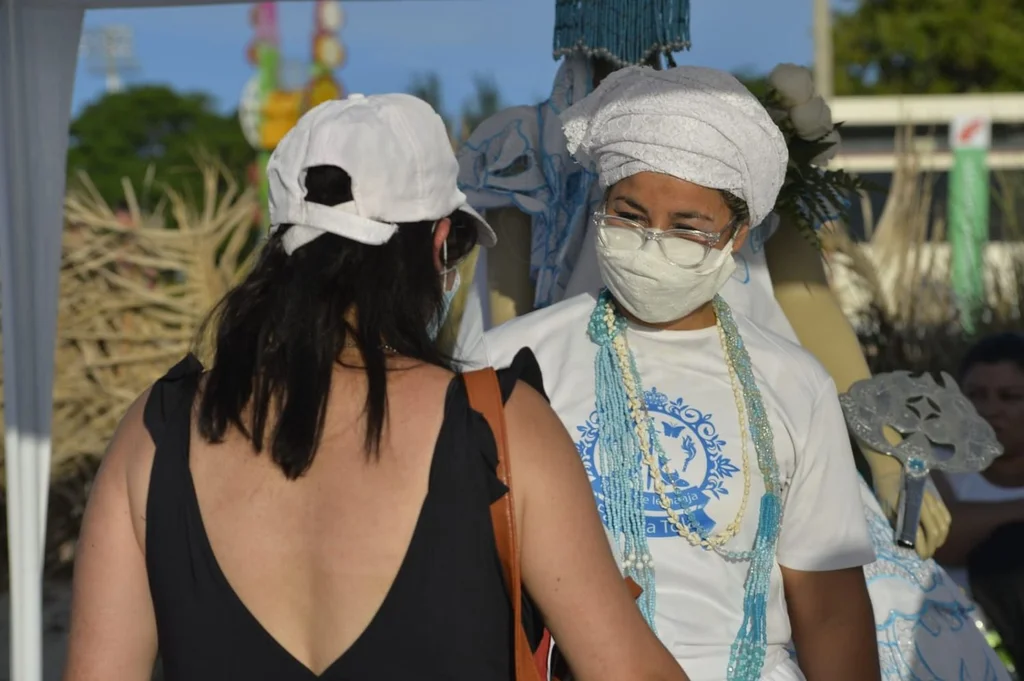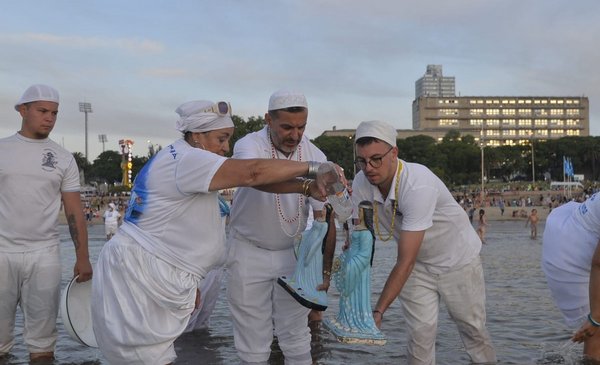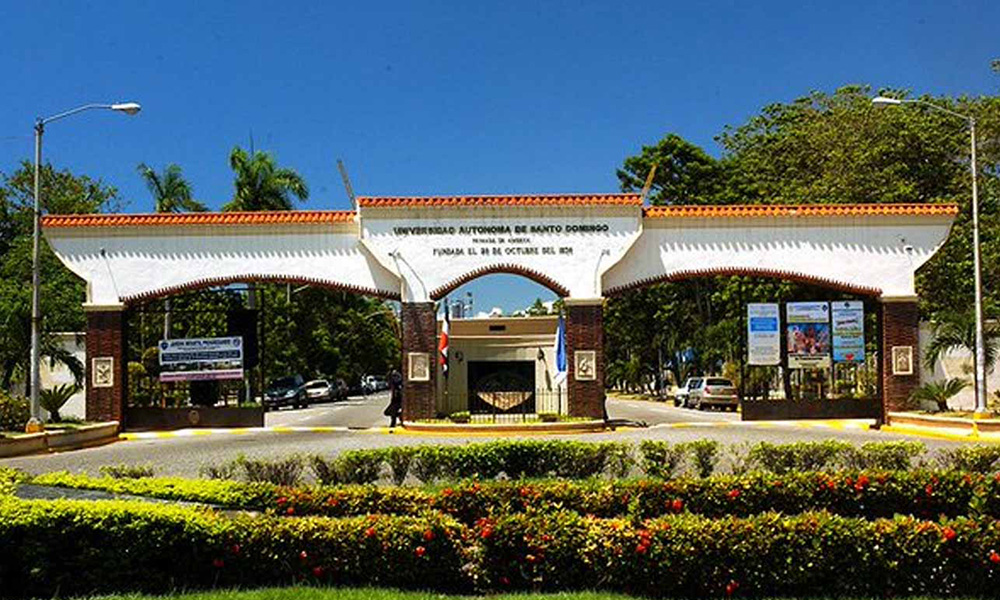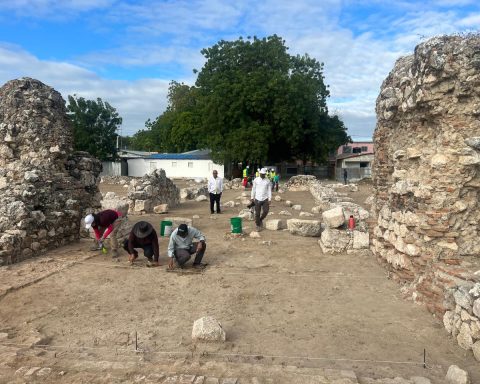Like every February 2, this Wednesday the faithful to the umbandista religion went down to the beaches to perform the cult to Iemanjá, his goddess of the sea.
This year’s celebration is the second since the health emergency was declared, although the situation of the current pandemic is far from that of 2021. Although concern about its lethality has decreased, there are 60,000 more active cases than then, an increase in cases attributed to the arrival of the omicron variant.
For this reason, the Atabaque Group – an Umbandist group – expressed in a statement that it would carry out the rituals without specifying specific locations “so as not to favor dangerous crowds” and suggested a celebration “in the privacy of the religious family nucleus.”
This year there was a less attendance than previous yearsbut still there were many people who went to the coast, where they could see traditional dances, music and offerings to the goddess.
Leo Carreno
Rituals at Ramírez Beach
In dialogue with Universal Radius, Mae Susana Andrade spoke of the peculiarity of this iconic day for devotees. “We know that it is a special day but the Iemanjá is always there, Uruguay is a country surrounded by natural water and that is a blessing,” she added. She also stated that while the organization promotes care and hygiene, it also consider themselves to be “spiritually very needy of Iemanjá, and it is a very special day”.
In addition, they reaffirmed the importance of comply with the provisions of the health authorities regarding the increase in cases of covid-19, “attentive to health care and prevention and what should or should not be done about it”.

Leo Carreno
Protection against covid-19 is used
They also requested “to continue with personal and group precautions that prevent or ward off infections, that means what we all know; vaccines, use of masks, hygiene, distances, no physical contact, no crowding, not mixing family groups, isolation in case of symptoms. or contagion, and everything that is necessary to take extreme measures to help prevent the spread of the virus”.
It was expressed in the statement to try to hold a staggered celebration: “If possible, look for different places at different times, for the purpose of do not transform the rite into a propagation vector of diseases due to imprudence, since, as spiritual beings, we are health promoters”.
Since this Tuesday, stalls have been installed on the Rambla de la Ramírez beach, one of the places where the largest number of faithful congregate, with objects for sale for offerings to Iemanjá.

Leo Carreno
Offerings to Iemanjá
The Municipality of Montevideo had previously reported that on Wednesday the lifeguard service would work until 11:45 p.m. on Ramírez, Cerro and Buceo beaches, due to the large number of attendees that these beaches receive each year in the celebration. In addition, he announced that they would put into operation special public transport services from the Parque Rodó terminal of lines 192 and 405.
After the event, at dawn on Thursday, the commune will begin a beach clean-up operation.
The tradition of the cult of Iemanjá of the practitioners of Umbanda has its origin in the Kutá River, in Nigeria, and came to America through the enslavement of the African population. Iemanjá is what is considered an “orixá”, an entity halfway between people and the divine.


















